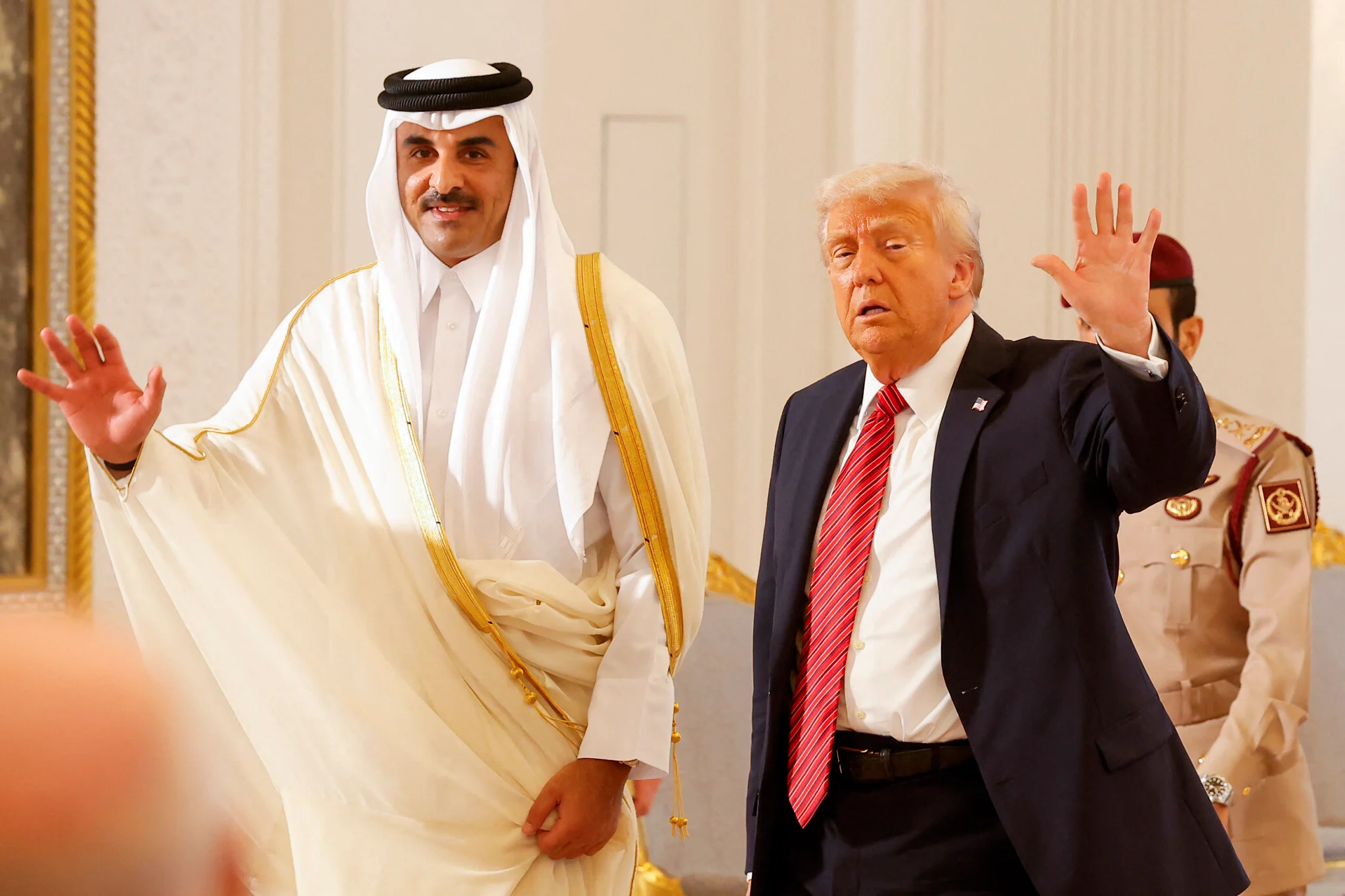US President Donald Trump said that he hopes Qatar’s Emir, Sheikh Tamim bin Hamad al-Thani, can play a key role in brokering a nuclear agreement with Iran as negotiations continue amid what Trump described as a “perilous situation.”
Speaking during a state dinner in Doha, Trump addressed the Qatari leader directly: “I hope you can help me with the Iran situation, because it’s a perilous situation, and we want to do the right thing.” He praised the Emir for the assistance Qatar has provided as Trump pushes for a new nuclear accord.
“I hope the Iranian leaders understand that what you’re doing, really, is a big favor for them. Your prime minister, your great leader, right here on my left, has been helping so much, and they respect him, and they listen to him. They have to get moving—we both understand that. The decision is theirs,” Trump said.
He continued, “I just hope Iran realizes what a good friend they have right here. In a certain sense, I guess I’m a good friend too, because a lot of people would rather have me take a much harsher approach. But I know that if we can avoid that road, it would be a great thing. I’d like to do that.”
Negotiations between the US and Iran, primarily focused on Iran’s nuclear program, began last month with Omani mediation, following a rise in tensions. The fourth round of talks concluded Sunday in Muscat, with Trump warning that time is running out, emphasizing that an agreement could “save maybe millions of lives.”
The current negotiations aim to reach a deal that would replace the Joint Comprehensive Plan of Action (JCPOA), known as the Iran nuclear deal, which was first agreed in 2015.
The US, under Trump’s leadership, withdrew from the JCPOA in May 2018, leading to a sharp escalation in tensions between Washington and Tehran. During his first term, Trump launched a “maximum pressure” campaign to push Iran back to the negotiating table for a new agreement. However, those efforts failed to yield results, and Iran responded by rolling back its own commitments under the deal, saying that Western signatories had not upheld their economic obligations.

